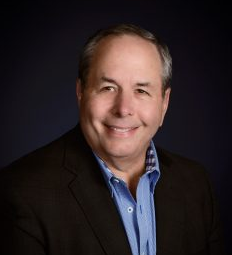
I first wrote this article while traveling with my wife in November. I had a meeting in Atlanta. As the airplane climbed above the clouds and my wife drifted off to sleep, I had some time to reflect on recent events.
Just before the trip, I received a telephone call from a very good friend, Lane. The first day of college, I was riding on an elevator, knowing no one. The elevator surged and my co-companion on the elevator and I looked at each other, wondering if the first day of college would be our last. That co-companion was Lane. We have been close friends ever since.
Lane and I have always been active together. For over 40 years, at least annually, we hunt, sometimes in Colorado and, most recently, in Kansas. Though it is only once or twice a year, every time we get together it seems as if we had just finished the conversation from the year before. Lane’s call to me in November was to inform me that he had been diagnosed with Parkinson’s.
Earlier in the year, a good friend 30 years my junior, shared with me that one of her parents had received a terrible diagnosis of stage-4 cancer. She was beside herself, asking many difficult life questions.
In both cases, I feel so worthless in trying to help. I feel inadequate, helpless, frustrated and disappointed. I do not have the words.
Recently, I met with a woman in her 50s. She and her husband have been married over 30 years. They did all the right things, and though he is older than she, when he retired they had great travel ambitions. Within months after his retirement, he was diagnosed with dementia. Now, traveling makes him anxious to the point that he really cannot leave home (that is not an uncommon feature of Alzheimer’s).
This woman (now my client) said something interesting to me. Though they cannot travel, she quit her job to stay at home with him. It is not so much to care for him, but she said to me, “It is my opportunity to visit and spend time with him while we can both appreciate it, reliving old memories.” It was one of those conversations that I know will burn in my memory forever.
When Lane came up to hunt after I did the first draft of this article, it was interesting. Lane is a psychologist, and of course, I do what I do. Both of us deal with families facing devastating news.
Lane and I spent almost a week together during our hunt. On at least three occasions, we had really good opportunities to discuss what was going on. I had tried to talk to him and he assured me he was OK.
Finally, Saturday morning rolled around. His truck was literally running, warming up to take off to return him to Texas. It was only then that he said, “Can we sit down and talk?” With the sound of the truck in the background, Lane and I talked about his reaction to the diagnosis, his fears, concerns, and what he needed to do next. I think in my mind, I was a little bit like a deer in the headlights.
I thought it so curious that the two of us, as close as we are, had such a difficult time talking about this—dealing with a chronic illness and end of life.
I know there are many of you out there facing a chronic illness and may be facing the end of life sooner than you expected. It is okay for it to be a difficult discussion, but it is a discussion you need to have with your family.
I think that what I have learned in dealing with both Lane, my other friend, and my clients, is that sometimes you just need to step back, fly above the clouds and appreciate everything that has happened. You can then sit back down and deal with the decisions that need to be made.
Randy Clinkscales of Clinkscales Elder Law Practice, PA, Hays, Kansas, is an elder care attorney, practicing in western Kansas. To contact him, please send an email to [email protected]. Disclaimer: The information in the column is for general information purposes and does not constitute legal advice. Each case is different and outcomes depend on the fact of each case and the then applicable law. For specific questions, you should contact a qualified attorney.
